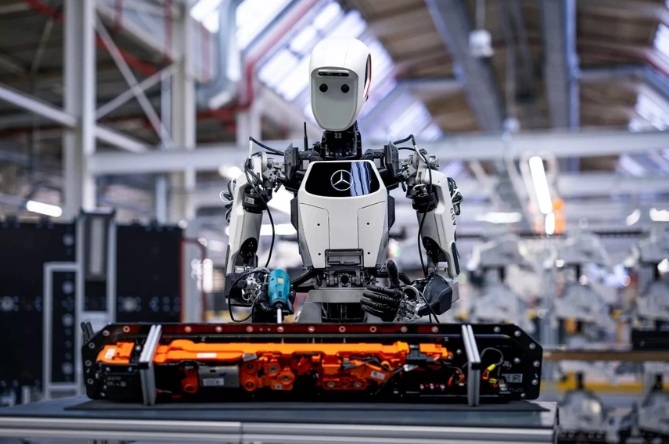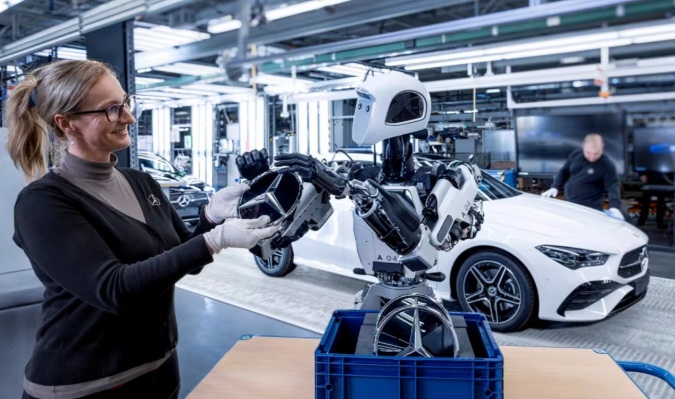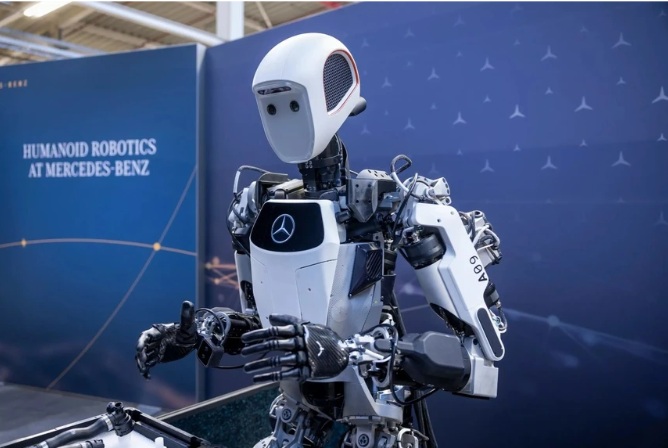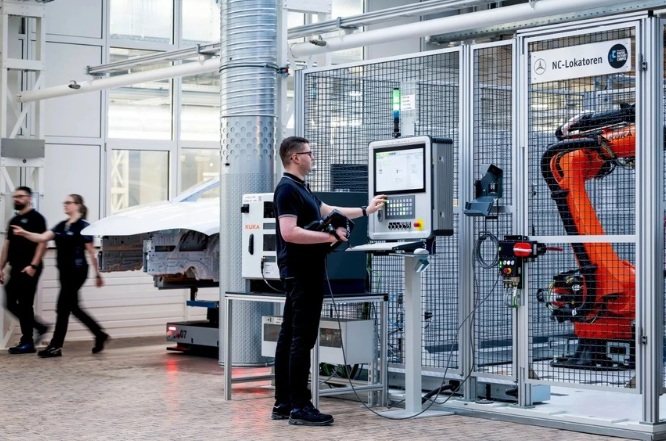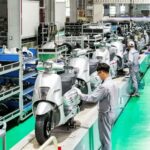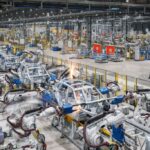For decades, automotive manufacturers have relied on large industrial robots to handle assembly and manufacturing processes.
However, with technological advancements, a new generation of smaller, more flexible robots is gradually replacing humans in more intricate tasks, particularly quality inspection and output management.
Mercedes-Benz is at the forefront of this trend. The company has introduced Apollo robots, manufactured by Apptronik (USA), at its plant in Berlin-Marienfelde, Germany.
The Apollo robots are currently responsible for internal logistics, such as delivering components to the assembly line and performing initial quality checks. Notably, they can autonomously move to charging stations when their batteries are low without human intervention.
While they haven’t entirely replaced human labor, with advancements in programming, robots like Apollo are expected to take on more roles in the near future.
In addition to embracing automation, Mercedes-Benz is also implementing a workforce reduction strategy, aiming to save $5.4 billion by 2027.
As part of this strategy, the German automaker has offered attractive compensation packages to encourage voluntary retirement. Long-serving employees can receive up to $540,000 in support, depending on their tenure, current salary, and contribution to the company.
Approximately 30,000 non-production employees are expected to be eligible for early retirement under this policy. However, the company emphasizes that no one is forced to leave if they don’t wish to or feel that the compensation is inadequate.
Mercedes-Benz’s push for automation and staff reduction is not just a short-term measure but a strategic move to optimize costs and enhance production efficiency.
This significant investment positions the luxury German automaker to maintain its market leadership and adapt to the transformative changes in the automotive industry driven by technology.
TH (Tuoitrethudo)




























